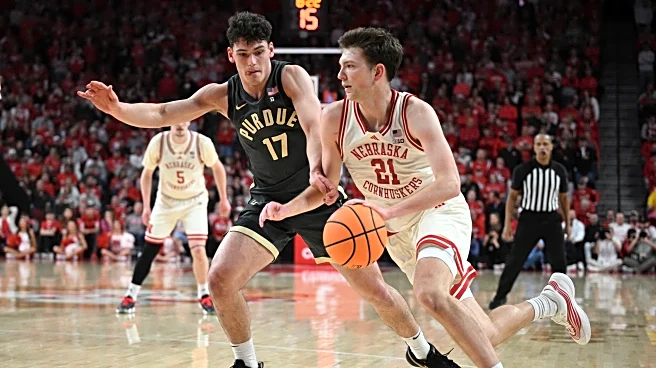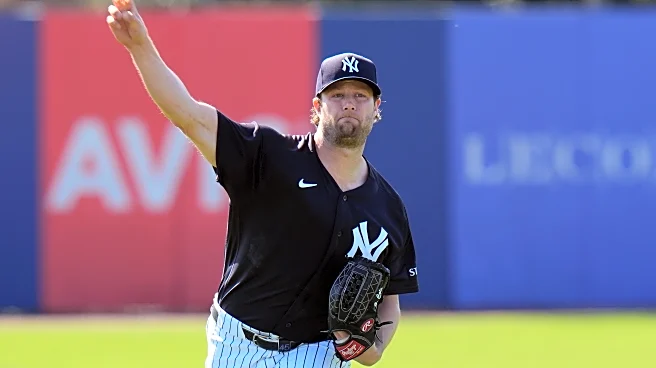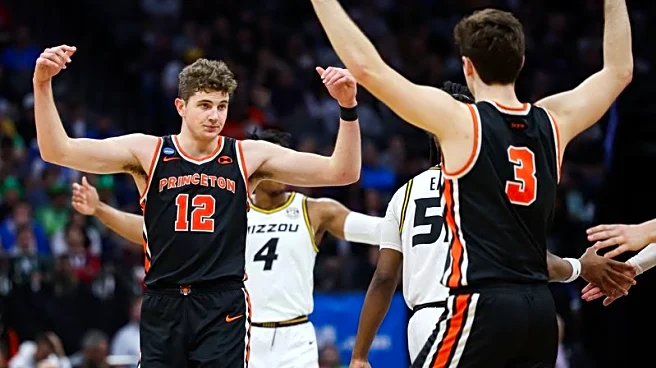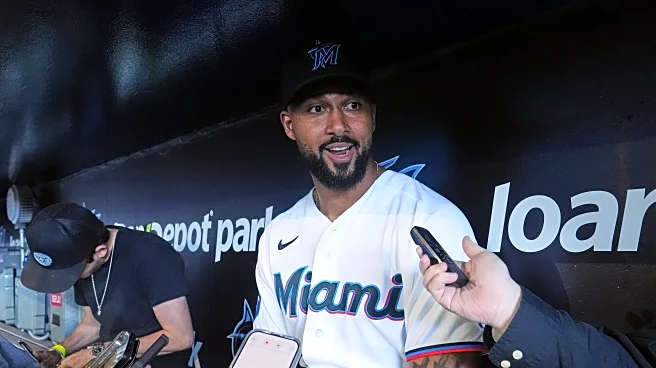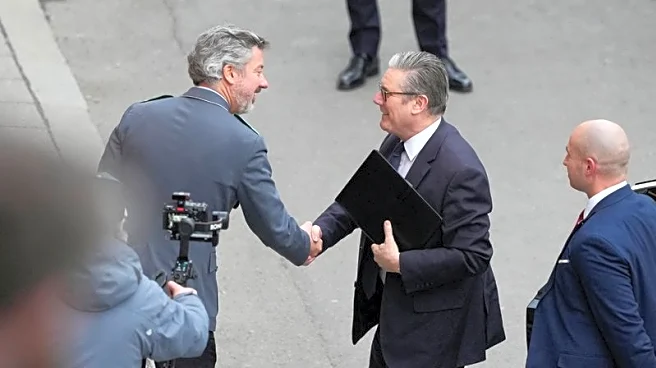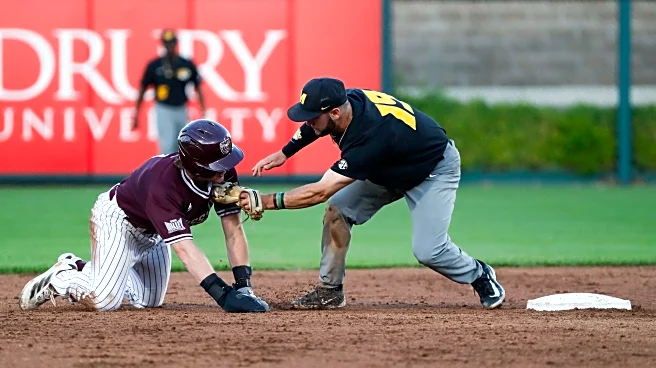Rapid Read • 7 min read
Federal prosecutors were unable to secure a felony indictment against Sean C. Dunn, who was accused of throwing a sandwich at a Customs and Border Protection officer in Washington, D.C. The incident occurred near the corner of 14th and U Streets, a popular area in the city. The grand jury's decision not to indict Dunn marks a significant setback for the U.S. attorney's office in Washington, as it is rare for a grand jury to refuse an indictment in such cases. This decision follows President Trump's deployment of National Guard troops and federal agents to patrol the city, which has led to over 1,000 arrests. Dunn, a former Justice Department paralegal, was initially charged on August 13, and the case has garnered significant attention, including viral social media footage and discussions among senior officials.
AD
The grand jury's refusal to indict Sean C. Dunn represents a notable pushback against the aggressive law enforcement measures implemented by President Trump in Washington, D.C. This decision could influence public perception of federal law enforcement's presence in the city and the administration's approach to crime control. The outcome may also impact future prosecutorial strategies in similar cases, as it highlights potential resistance from ordinary citizens against federal actions. The case's visibility, amplified by social media, underscores the public's role in shaping legal outcomes and the importance of community sentiment in judicial processes.
It remains uncertain whether prosecutors will attempt to seek an indictment against Dunn again or opt to refile the charges as a misdemeanor, which would not require an indictment. Dunn is expected to appear in federal district court to determine if there is probable cause that a crime was committed. The decision could set a precedent for how similar cases are handled in the future, particularly those involving federal agents and public interactions. Stakeholders, including legal experts and civil rights advocates, may weigh in on the implications of this case and its impact on law enforcement practices in urban areas.
AD
More Stories You Might Enjoy
